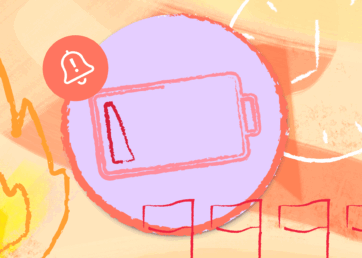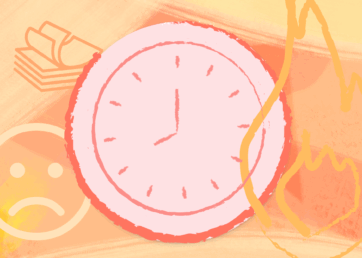Isn’t it amazing that we will happily pour our creative energy into inventive excuses to not complete a task?
Suddenly, a million little things simply must take priority; a desk needs clearing out or it is finally time to cancel all those unused memberships – anything but the task at hand. If all of this sounds like you, then you suffer from procrastination. Here’s a secret: that thing you are putting off doing isn’t going anywhere but the sense of panic you feel about getting it done will continue to grow. Learning how not to procrastinate, is not only an essential life skill, but it will also mean you run more successful projects in the long term.
In this article 📖
2 Minute Rule
The first remedy to overcoming procrastination is the ‘2 Minute Rule’, a simple technique that’s sure to jumpstart a bout of productivity. Sometimes starting a task is the scariest part but it’s usually not due to lack of expertise or the task’s difficulty. Try the principles below to see if you can overcome procrastination before it has a chance to settle in.
Part 1: If a task takes two minutes or less to complete, then you should do it now.
How this works: create a to-do list with all the tasks that need doing for the day, then pick out the tasks that can be done in two minutes or less and complete them before moving on.
Why this works: completing a task without delay (like washing dishes straight after dinner or sending a follow up email after a meeting) means that it never really gets added to your macro to-do list and therefore cannot cause you stress in the long-term.
Part 2: When starting a new habit, it should take less than two minutes to complete.
How this works: What the above doesn’t mean is that you have to master a habit in that period of time. Instead, it’s about taking a small step to building long-term habits; if you want to start drawing, do a quick two-minute sketch, if you want to start running, get out of the door and run for two minutes, and so on.
Why this works: You don’t have to stop after the time is up but knowing that you need only do something for two minutes is low pressure and therefore less intimidating to accomplish. This makes starting and keeping new habits far easier than committing large chunks of time outright.
Rewards
When it comes to procrastination, our brain processes the delay of completing a task as a reward therefore reinforcing this behaviour over time and leading to even more procrastination. The brain starts to crave the short-term relief/reward that delaying a task brings.


“Resource Guru has the perfect balance of simplicity and detail. It’s easy to see where issues might arise.”
Reworking this psychological schema is essential to beating procrastination at its own game; start with the ‘2 Minute’ rule above to do any task that needs to be completed and see how long you can stick with it for. Reward yourself with active procrastination – a real break taken after you have completed an activity or made good progress on it. It’s a win/win for you brain.
Time Management and Planning
Good time management is essential to completing tasks without delay. Figure out when you are most alert and schedule your least favourite tasks for that time of day to ensure that you can power through them without distraction. Leave the tasks that you enjoy doing for when you start to slow down a bit, maybe even using them as the reward for getting through the elements you find tedious.
Remember, multitasking is basically a myth – research from the neuroscientific field says so. Instead, going from one task to another tires the brain more easily. Doing a little bit of everything means that nothing gets your full attention and is never completed to the highest standard. Plan your time, write daily to-do lists, and take into consideration when you feel most alert to make your working day efficient and enjoyable.
Resource Scheduling
Sometimes procrastination happens due to the inefficiency of others. If you can only forge ahead with your project or work after someone has completed their assigned portion, then you will run into scheduling conflicts, especially when operating without an official schedule. Small businesses are especially prone to this style of working, believing that issues can be talked about when they arise, but this approach doesn’t consider the future of the company.
Establishing good business practices, like effective scheduling, will ensure and enforce efficiency across companies of any size. Inevitably, this will reduce ‘enforced’ procrastination where the completion of a task is dependant on multiple elements, making the whole process run smoothly from start to finish.
If you would like to reduce the amount of procrastination in your office, then check out Resource Guru’s innovative resource scheduling software before any more time is wasted today.





